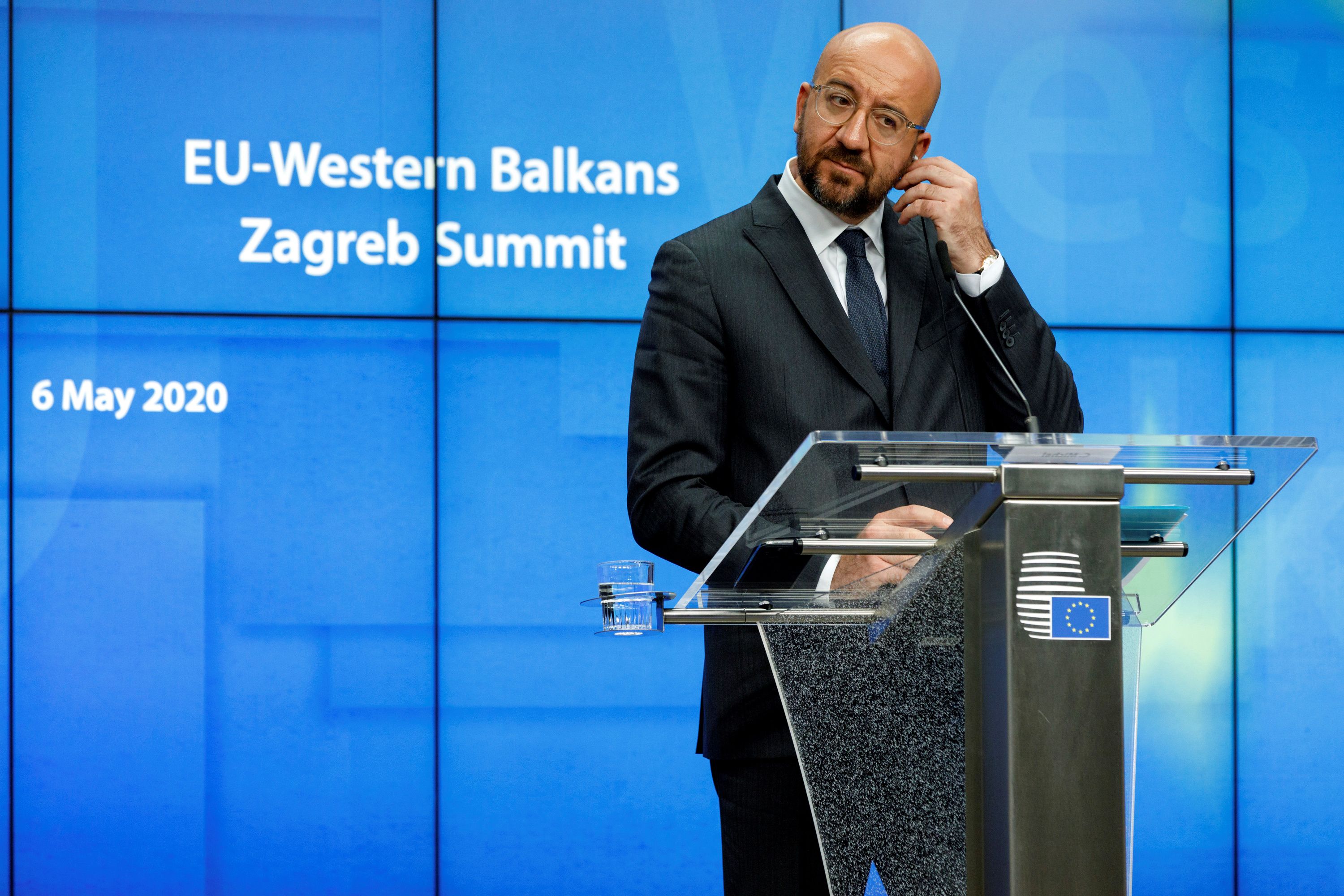European Union-Western Balkans Summit in the Shadow of the Pandemic

Why was the EU-Western Balkans Summit convened?
Croatia proposed a meeting in Zagreb during the previous EU-Western Balkans Summit in Sofia in May 2018. Like that event, the summit in Croatia—the current presidency of the EU Council—was to revive the European integration of the Balkans, which slowed down recently because of both the modest transformation in the region and France’s objections to further enlargement. Meetings of leaders of the EU and the Western Balkans are rarely convened and usually associated with strategic proposals. The Zagreb Summit in 2000 was the first time the EU presented a membership perspective for the region, which was confirmed in Thessaloniki in 2003. The Zagreb Summit in 2020 was to symbolically refer to the previous one.
What was the impact of the pandemic on the summit?
The COVID-19 pandemic influenced the formula of the meeting. At the beginning of April, Croatia announced that the summit would be moved to June. Ultimately, it took place on time but by teleconference. The pandemic also affected the content of the final declaration. It highlighted the EU’s solidarity with the Balkans in this time of crisis, including support from the Union worth €3.3 billion in combating the coronavirus and for economic recovery. It was emphasized that this assistance goes significantly beyond that provided to the region by any other partner and that this deserves to be made widely This reference is clearly intended for Serbia, whose authorities welcomed help from China and Russia with much publicity, in contrast to aid from the EU. Also, media controlled by the Serbian authorities—and not only state–owned outlets—intensified this message.
What was agreed at the meeting?
Actions like Serbia’s translated into highlighting in the final declaration the need for cooperation in combating disinformation and other hybrid activities. The document explicitly indicated that the credibility of the Balkan governments’ commitment to European integration depends not only on the implementation of reforms but also on clear communication with the The declaration also confirmed that the Union wants to work to include the Balkans in the EU’s ambitious climate goals. In addition, it declared strengthening cooperation in traditional areas, including the rule of law, the fight against organised crime and corruption, and security, including in energy security and migration. At the same time, the declaration confirmed support for the EU perspective for the Balkans.
What are the dynamics of the EU enlargement to the Balkans?
The process is marked by low dynamics, first of all caused by the delay of almost two years by the Council decision to start EU accession negotiations with Albania and Northern Macedonia. This was decided only in March, although the EC recommendation and progress in the Macedonian-Greek dialogue allowed the Council to make such a decision in June 2018. Enlargement has also been slowed by France’s reservations about integration. Also, the prolonged negotiations of Montenegro, which has provisionally closed three of 35 negotiation chapters since 2012, and Serbia, which has closed just two chapters since 2014, are near stagnant. What’s more, progress is not heralded by this year’s democratic rankings, in which some of these countries regressed, falling to the worst in the region in freedom of the press, with Freedom House recognising them now as transitional or hybrid regimes, joining other countries in the Western Balkans.
What is the significance of the EU enlargement to the Balkans for Polish foreign policy?
EU enlargement is important in light of Poland’s top foreign policy priority, which is to ensure security, including in the immediate vicinity of the EU, through Euro-Atlantic integration. Polish involvement in the integration of the Balkans is growing. In the last two years, this has been influenced by Poland’s presidency of the Berlin Process and that initiative’s summit in Poznań in 2019. The Polish government several times tried to mobilise the EU Council—in joint actions with Poland’s Visegrad partners—to adopt a positive decision regarding Albania and Northern Macedonia. It also supported reforms in these countries, thanks to institutionalised bilateral cooperation. The Zagreb declaration shows that, in addition to strengthening the rule of law, the Balkan countries will also need good practices concerning climate policy and combating disinformation.


